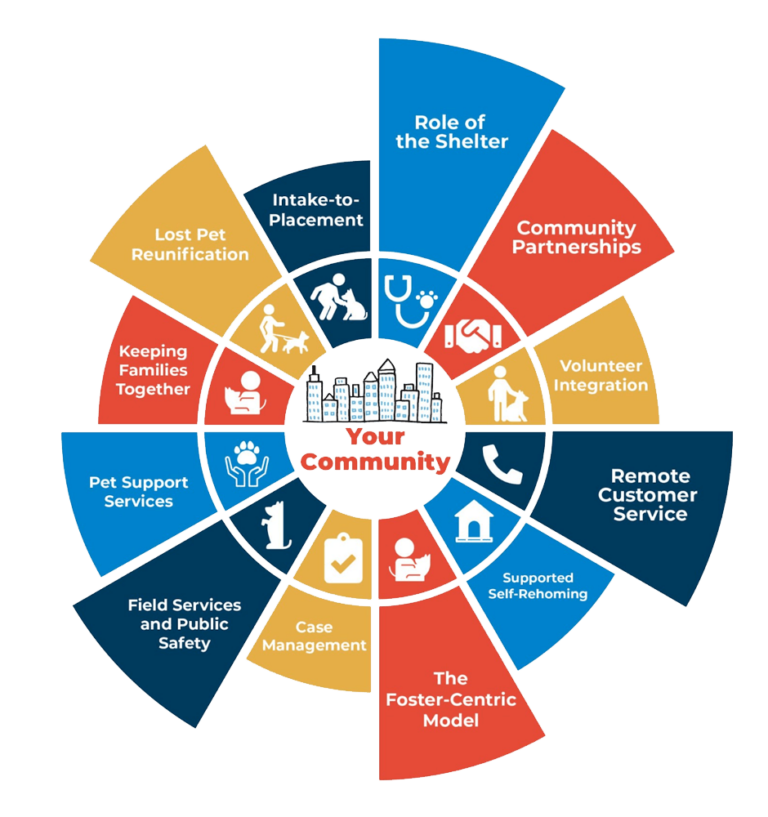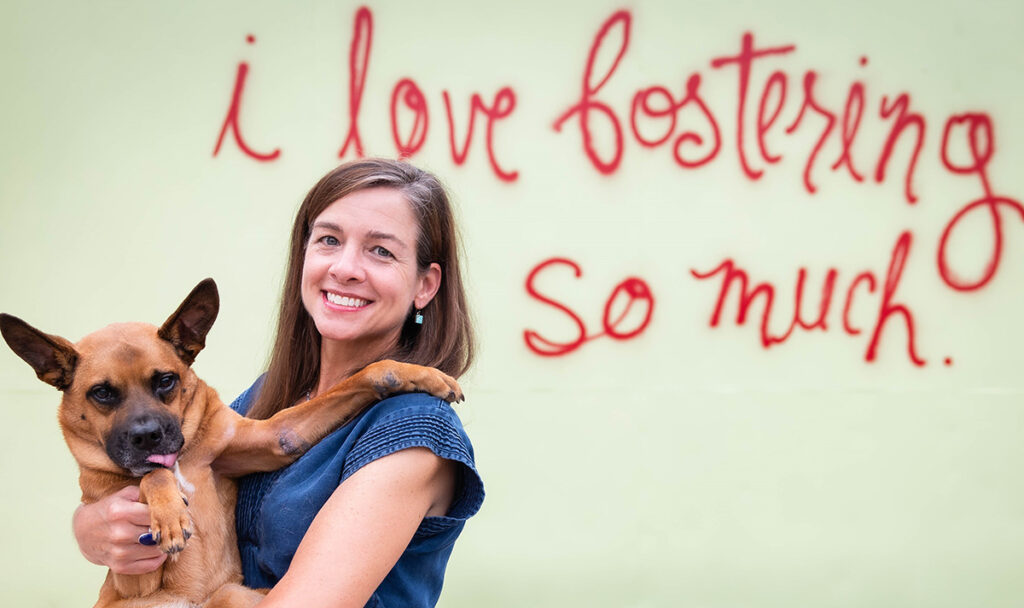Featured Content
A holistic guide to implementing the HASS pathways, designed to support animal welfare professionals in the industry’s call for systemic change.
Implement the HASS Model
Digital Tools
HASS Partners & Pilots
Latest From HASS
A holistic guide to implementing the HASS pathways, designed to support animal welfare professionals in the industry’s call for systemic change.
The Human Animal Support Services (HASS) mission is to revolutionize the animal welfare industry by leading with and embracing a community-centric sheltering model. By providing both private and municipal community shelters with equitable access to data-driven resources, education and implementation tools, HASS aims to create a movement of unified support systems for pets and their people
The Human Animal Support Services project reimagines a world where the human and animal welfare industries work together to serve people and pets in need. Preserving and prioritizing the human-animal bond is at our core through a new, social services perspective.

HASS provides access to welfare solutions built as an extension of the community animal shelter. Recognizing that a shelter’s primary functionality is to respond to immediate needs and crises, a community-centric approach allows for social services to step in as the first line of defense. As a united front, animal shelters are able to meet ALL human and animal welfare needs because of the social services provided by the community.

All people are deserving of the priceless companionship of pets regardless of age, race, gender identity or socio-economic status. Our work prioritizes the importance of diversity, equity and inclusion so all voices, human and animal alike, are advocated for. By utilizing a data-first, policy-informed approach, the resource access HASS provides encourages unbiased implementation for all animal shelters. This includes an ongoing commitment to self-evaluation to address power imbalances and to develop mutually beneficial partnerships within communities we serve.

HASS proactively builds authentic human-animal community relationships to affirm our central role in protecting the bonds between people and their pets. We understand that it is through these powerful community relationships that organizations are able to save lives and provide access to custom treatment of care for all who enter an animal shelter.

At the heart of HASS is connection–we aim to ensure people working in animal and human service organizations have individualized support to promote their physical, mental and emotional well-being. Knowing there is no supporting pets without people, we honor the work of all human and animal welfare professionals and strive to provide a safe space and the industry-resources needed to support one another as we work toward the common goal of saving animals and supporting local communities.
Poverty and inequity response is a core issue to be addressed within human and animal welfare. As we collectively witness nation-wide concerns such as the housing crisis or economic insecurity continue to rise, so does the need to support families staying together. HASS aims to bridge the resource gap for those experiencing these challenges so people and their pets can come out the other side, together.
The Human Animal Support Services (HASS) project launched in April 2020 as an immediate response to assist animal service organizations in need. Co-founded by Austin Pets Alive! (APA!) President and CEO Dr. Ellen Jefferson in collaboration with dozens of industry leaders, we built a comprehensive strategy to manage this sheltering crisis by engaging with the community and reimagining the animal welfare industry’s traditional shelter-first response model.
Separated into three main pillars: education, data and policy, HASS encompasses a network of more than 1,500 animal and human welfare professionals unified by a passion for saving lives and keeping people and their pets together. Under the innovative direction of animal welfare industry leader Vincent Medley, and an expert team of animal and human services veterans, our 41 pilot shelters and 170 partner organizations have joined the movement by committing to implement the HASS Model within their shelters.

Since its founding, HASS has recognized the imperative, collective responsibility to care for animals by providing equitable access to social services to every person and pet in need. Through an ecosystem led by engaging in community partnerships that support the bond between animals and people, HASS pilot and partner organizations have served more than 20 million people with an estimated total of 12 million pets across the U.S. and Canada. Utilizing HASS-crafted implementation pathways, communities are better equipped to tackle systemic challenges in their own backyards while creating a collaborative, industry-wide voice for change.

More than your average animal shelter, Austin Pets Alive! (APA!), is the founding partner and facilitator of HASS. With a vision to provide the best chance at life for all shelter animals, APA! is an organization known in the industry as a pioneer of comprehensive, innovative programs specifically designed to save animals most at risk across the nation. Located in Austin, Texas, and the heart of the innovation corridor, APA! has saved more than 110,000 lives and coordinates more than 10,500 adoptions each year. It is the APA! model that inspires the HASS project and continues to be a driving force behind our purpose.
Recognizing that solving the challenges animals face in our communities begin with addressing the challenges of people, HASS aims to revolutionize the current industry approach through a new, unified ecosystem of human and animal welfare programs that target the root of any need.
Everything we do is data-driven.
Through HASS-exclusive research, programming, and digital tools like pets.findhelp.com, we collaborate with animal shelters to understand their full operational scope. Data-informed implementation enables HASS to help shelters move the needle with policy makers, community members, and ultimately, save lives.
Our policy team is rooted in acknowledging there is no systemic change without understanding and actively engaging with a community’s policies, legislative goals and laws. HASS believes in the democratic process and bridging the gap between animal shelters and elected officials to serve communities as a united front. The HASS team includes elected animal advocates by the city of Austin, Texas, and works directly with HSUS on federal legislative matters.
Our small but mighty team of experts in community-centric model implementation provide peer-to-peer consultation for animal shelters nationally. Unlike anything currently offered in the industry, HASS trail-blazes a path forward for and collaborates directly with pilot animal shelters to meet goals they may not otherwise have support achieving.